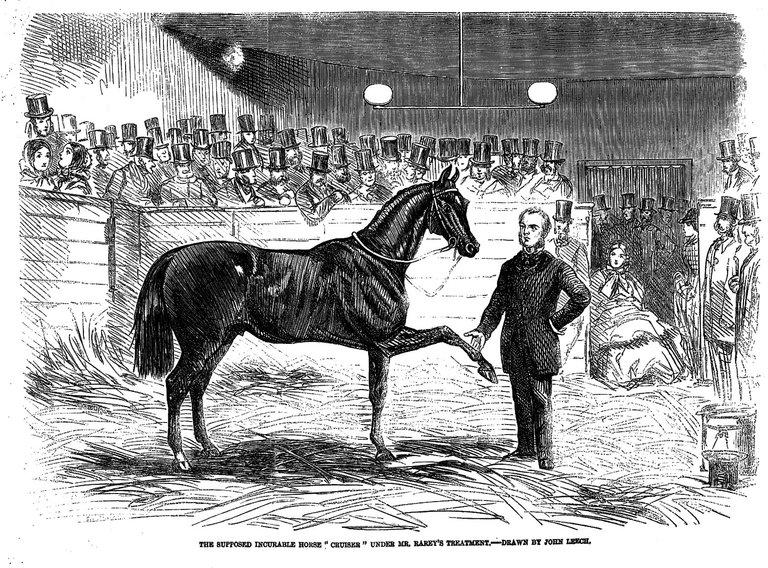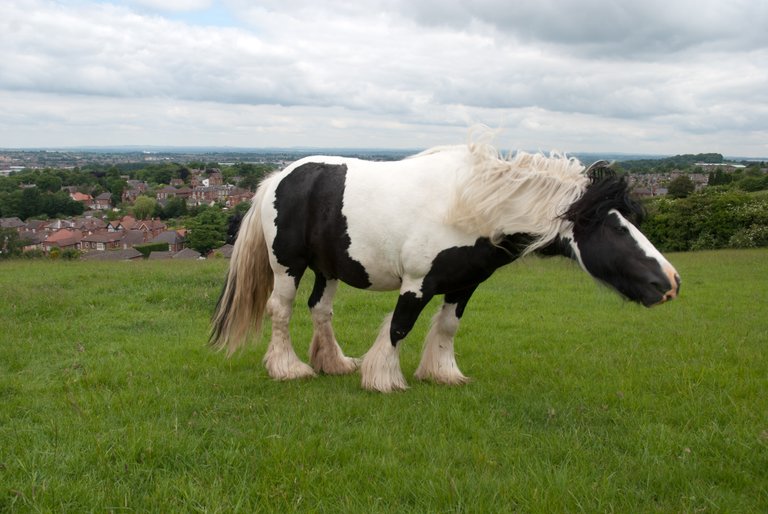Hearing the word ''strangles'' will most likely make us think about the literal strangling of a human or pet. While that may be correct, this post is about a bacterial infection that affects animals, particularly the likes of horses, donkeys, and ponies.
It is a bacterial infection that affects the respiratory tract, most often characterized by the abscessation of the lymph nodes in the head and neck region. It is common, in fact, one of the most commonly diagnosed respiratory infections affecting horses worldwide; it has been in existence for over 800 years now.

Source
Although a rare disease, the infection has caused meningitis and bacteremia in humans and serious pneumonia in a camel. It is caused by Streptococcus equi equi.It is a highly infectious disease that produces high morbidity and low mortality.
Morbidity may get to 100% amongst naive horses; more reported cases of the infection have been reported between horses within 1–5 years of age.Transmission is possible through direct contact with an infected horse or with other contaminated fomites.

Source
Horses with overt clinical signs of disease are clear sources of infection; horses recovering from an infection but who no longer demonstrate an overt clinical sign play a significant role in disease outbreak and also perpetuation of the organism within the population.
The organism being able to survive in the environment greatly depends on humidity and temperature, encompassing if there is an experience of a cold or wet period within mucoid secretions to improve survival.S. equi is highly susceptible to extreme heat, dessiccation, and exposure to sunlight; most organisms would not be able to survive up to 3 days in such an environment.S. equi bacteria finds its way into the upper respiratory tract through ingestion or inhalation, then they colonize the regional lymph nodes just within a few hours after infection has occurred.
The incubation phase of strangles is often between 3 and 14 days, with fever being the first sign of infection. Horses begin to shed bacteria for over 2–3 weeks. The gist 24-48 hours of infection will have the horses exhibiting serious signs of strangles: mucoid, mucopurulent nasal discharge, depression, and submandibular lymphadenopathy with the presence of or without absecessation.
Horses that have experience with internal retropharyngeal lymph node abscesses would experience difficulty swallowing, extended head and neck, and inspiratory respiratory noise.Chances of complications with S equi infection is real but rare, they may come in the form of bastard strangles which means abscesses developing within other body organs, and may be fatal.

Source
Purpura haemorrhagica is another life-threatening possible complication that caused bleeding from the capillaries and the accumulation of fluid in and around the limbs and head. The accumulation of this fluid can be so serious that it results in circulatory collapse and eventually death.
Supportive care is the most likely available option for the treatment of strangles. Anti-inflammatory medication is required to treat the increased temperature and make the affected horse feel well enough to feed.Feeding sloppy, wet food from the floor makes it a lot easier for an infected horse to swallow; it also encourages abcesses to drain.
Mostly compressing the abscesses will help them to bring them to surface, giving room for rupturing.To treat carriers, it involves the removal of dried pus from the HR guttural pouches through endoscopy and antibiotics within guttural pouches.On rare occasions, vets could treat infected horses with a simple course of antibiotics, but this is not always the same for individual cases.
There is an available vaccine for horses with high risk, the vaccine is a submucosal injection given to the inside of the upper lip. Apart from vaccination, the best prevention method is good yard management and biosecurity.
References
Healthy -Horsrs/AboutStrangles
respiratory-diseases-of-horses
